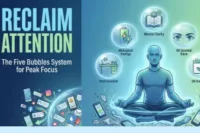Hydration for High-Performers: Why Water is Your Ultimate Productivity Tool
Published: 14/07/2025
You meticulously plan your day, optimize your diet, and chase new skills to stay ahead. Every hour is accounted for, every task organized for maximum productivity. But what if, despite all these efforts, there’s a seemingly simple yet powerful factor slipping through the cracks—sabotaging your peak performance?
It’s the water you drink.
Even mild dehydration—something as easy to overlook as a missed sip—can silently erode the very pillars of high performance: focus, energy, mood, and cognitive function. While you’re diligently ticking off tasks, dehydration quietly drains your potential, making it harder to think clearly, stay energized, and perform at your best.
Here’s the truth: Hydration is far more than just “drinking more water.” It’s a game-changing tool high-performers use to optimize mental and physical capacity. In this guide, we’ll dive into the science-backed strategies that transform hydration into your ultimate productivity ally. By mastering hydration, you’ll not only improve your physical health but also elevate your cognitive clarity, emotional resilience, and overall productivity—effortlessly.
Let’s unlock the secret to your best work, starting with the simplest (yet most overlooked) productivity tool in your arsenal: water.
Beyond Thirst: The Subtle Science of Dehydration’s Impact on Your Brain & Body
You might think dehydration only becomes a problem when you’re parched or severely thirsty. But the reality is much more insidious—dehydration begins to affect your brain long before you even notice the dry mouth. Water is essential for so much more than hydration; it’s vital for maintaining proper neurotransmitter function, transporting nutrients to the brain, and even helping regulate the electrical signals that power your thoughts and decisions.
Here’s what happens when you’re even slightly dehydrated:
- Reduced Attention Span: Your brain’s ability to focus takes a hit. When dehydrated, your mind struggles to stay on task, easily drifting away from what you’re trying to concentrate on.
- Impaired Memory: Memory recall, especially for complex information, becomes slower and less reliable. Dehydration reduces the efficiency of neurotransmitters, making it harder to encode and retrieve new information.
- Slower Processing Speed: Thinking, analyzing, and responding becomes sluggish. Your cognitive speed slows down, and complex problem-solving tasks feel more challenging than usual.
In fact, studies have shown that even mild dehydration—around 1-2% of body weight—can have a cognitive impact similar to sleep deprivation. This means that just a small deficit in hydration can leave you feeling mentally foggy and far from peak performance.
The Energy Drain: Why You Feel Sluggish Even After Enough Sleep
It’s a common experience: You’ve had a full night of sleep, yet you still feel sluggish throughout the day. The culprit? Dehydration.
Water plays a pivotal role in the production of energy at the cellular level. When you’re dehydrated, your body’s ability to generate energy is compromised, leading to a noticeable drop in your physical and mental endurance.
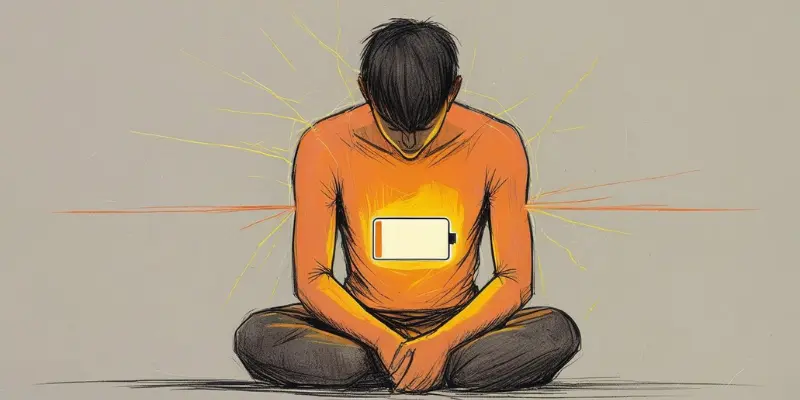
Here’s what dehydration does to your energy levels:
- Fatigue: Without sufficient water, your cells can’t generate energy as effectively, leading to feelings of tiredness and lethargy. Even after a good night’s rest, you may find yourself fighting exhaustion all day.
- Muscle Weakness: It’s not just your physical muscles that suffer. Dehydration weakens your non-physical muscles—the ones responsible for mental stamina and focus. Tasks that should feel easy suddenly seem to take much more effort.
- Reduced Mental Endurance: As dehydration sets in, your brain’s ability to power through mentally demanding tasks becomes more limited. Mental fatigue starts to accumulate faster, and tasks requiring sustained concentration become harder to manage.
So, even if you’ve checked off every item on your sleep hygiene checklist, you won’t be able to sustain high energy levels if hydration is overlooked.
Mood & Mental Resilience: The Surprising Link to Your Water Bottle
Dehydration doesn’t just drain your body and mind—it also takes a toll on your emotions and resilience. While you may think of mood swings as the result of stress or lack of sleep, dehydration is an often-overlooked factor contributing to irritability and anxiety.
When your body doesn’t have enough water, it struggles to regulate temperature and manage essential processes that keep you emotionally stable. This can cause:
- Increased Irritability: Dehydration can make you feel more on edge, reacting more quickly to stress or frustration.
- Anxiety and Stress: Studies suggest that dehydration can increase cortisol levels (the stress hormone), exacerbating feelings of anxiety and restlessness.
- Mood Instability: When you’re dehydrated, you’re more likely to feel emotionally reactive, leading to less stable moods.
Hydration is a foundational piece of mental toughness. Keeping yourself well-hydrated provides the physical support your brain needs to regulate emotions, think clearly, and stay resilient in stressful situations. By prioritizing hydration, you’re not just boosting focus—you’re enhancing your ability to stay calm, composed, and level-headed in high-pressure moments.
In this section, we’ve covered how dehydration quietly impacts key elements of performance, from cognitive function to emotional regulation. While staying hydrated might seem simple, its effects are profound, making hydration a powerful tool in your productivity toolkit.
The High-Performer’s Hydration Blueprint: How Much & What Kind?
You’ve probably heard the common recommendation to drink eight 8-ounce glasses of water a day. While this is a good baseline for many people, it’s far from one-size-fits-all. Your individual hydration needs depend on several factors, and understanding what applies to you specifically is key to unlocking your best performance.
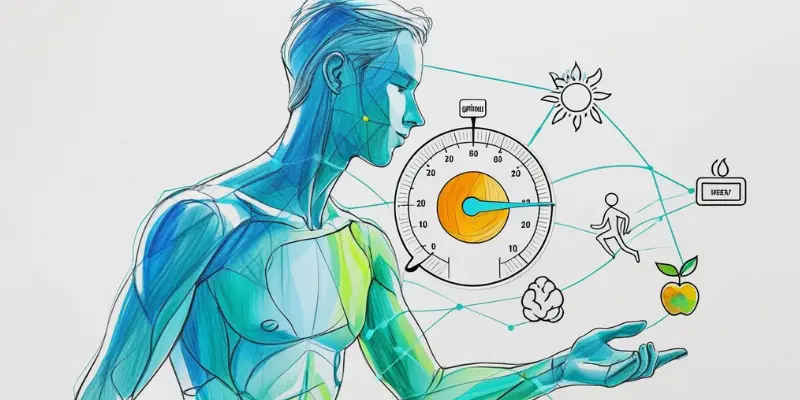
Here’s what influences how much water you actually need:
- Activity Level (Mental & Physical): The more active you are—whether mentally (brain-heavy tasks) or physically (exercise, manual labor)—the more water you require. Mental tasks like problem-solving or intense focus can dehydrate you just as physical exertion can. Physical activity increases your sweat output, which demands additional fluid replenishment.
- Environment: Living or working in hot, humid conditions or at high altitudes can significantly increase your water needs. Heat and humidity cause you to sweat more, while higher altitudes can cause you to lose fluids through more rapid breathing.
- Diet: A high-protein, salty, or sugary diet requires more water to aid digestion and flush out waste. Foods that are dehydrating, like processed snacks or caffeinated beverages, can also increase your hydration needs.
- Body Size: Larger individuals need more water, simply because they have more body mass and therefore more cells that require hydration.
Actionable Tip: A simple formula to calculate your daily water intake is based on your body weight:
- Take your body weight in pounds, divide it by 2, and the result will give you the minimum number of ounces of water you should aim for each day.
- For example, if you weigh 180 lbs, you should aim for at least 90 ounces of water daily.
From there, adjust based on factors like physical activity, climate, or diet.
Water vs. “Water-Rich”: Smart Fluid Choices for Peak Hydration
Now that you know how much water you need, let’s talk about what kinds of fluids you should be consuming to optimize hydration and performance.
- The Power of Plain Water: Plain water is your best friend when it comes to hydration. It’s the purest form of fluid your body needs to function optimally. It helps your cells absorb nutrients, regulate temperature, and flush out waste. Water’s simplicity is its strength—it’s calorie-free, readily available, and incredibly effective at maintaining hydration.
- Electrolytes for Sustained Performance: While plain water is essential, there are times when electrolytes become necessary—particularly during intense physical activity or when you’re under mental strain for extended periods. Electrolytes like sodium, potassium, magnesium, and calcium help your body maintain fluid balance, and they play a role in muscle and nerve function. When You Need Electrolytes: If you’ve been sweating heavily (after a workout, or on a hot day) or you’re under intense mental pressure (such as working long hours without a break), an electrolyte-enhanced drink or supplement can help maintain performance levels. But for day-to-day hydration, regular water should suffice.
- Hydrating Foods: Incorporating water-rich foods into your diet is an excellent strategy to stay hydrated. Fruits and vegetables like watermelon, cucumbers, oranges, and strawberries are packed with water and nutrients that help replenish lost fluids. Soups, broths, and smoothies also provide hydration and are easy to digest. How to Incorporate Them: Make hydrating foods a regular part of your meals and snacks. Start your day with a hydrating smoothie or add extra fruits and vegetables to your lunch and dinner. A simple salad with cucumbers and lettuce can boost hydration while providing fiber and vitamins.
- Beverages to Be Mindful Of: While staying hydrated is crucial, not all fluids are created equal. Some beverages can actively dehydrate you or diminish the hydration benefits of the water you’ve consumed:
- Coffee & Tea: Caffeine has a mild diuretic effect, which can cause you to lose fluids faster. While a cup or two of coffee or tea won’t hurt most people, excessive consumption can add up to a significant fluid loss. The key is balance—enjoy your caffeine, but also be sure to compensate with extra water.
- Sugary Drinks: Soda, energy drinks, and sweetened beverages can not only dehydrate you but also spike your blood sugar, making you feel more sluggish later on. Opt for unsweetened beverages or flavored water for a healthier alternative.
- Alcohol: Alcohol is a potent diuretic, which means it increases urine production and can quickly lead to dehydration. If you’re drinking, remember to alternate alcoholic beverages with water to prevent dehydration and mitigate its effects.
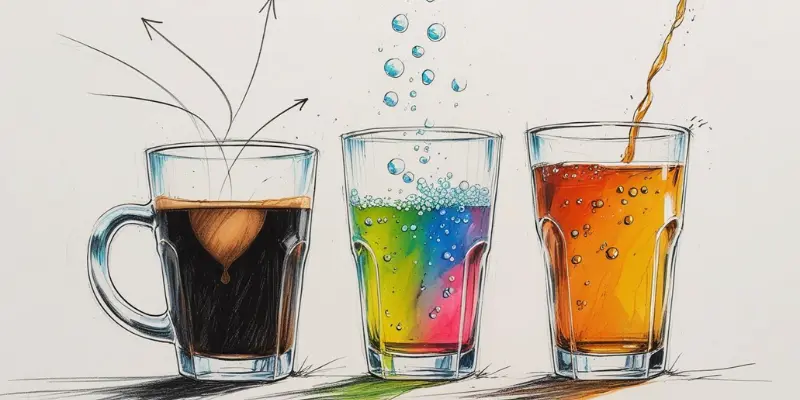
By understanding your individual hydration needs and making smarter fluid choices, you’ll fuel your body and mind more effectively, giving yourself a distinct edge in productivity. Hydration is the foundation, but knowing how and when to incorporate electrolytes and hydrating foods ensures you’re supporting both your performance and overall health.
Expert Tips & Common Mistakes to Avoid
Staying hydrated is a relatively simple process, but misinformation and common mistakes can quickly sabotage your efforts. Let’s clear up some common misconceptions about hydration so you can stay on track and perform at your best.
- Mistake 1: Relying solely on sugary drinks or coffee for fluid intake
It’s tempting to grab a sugary beverage or coffee for a “quick fix,” but these drinks come with hidden hydration costs. Coffee and tea, while helpful for mental alertness, act as mild diuretics, which means they increase urine production and contribute to fluid loss. Similarly, sugary drinks like sodas or energy drinks may give you a temporary energy boost but often leave you feeling sluggish once the sugar wears off. Plus, the high sugar content can spike your blood glucose and add extra calories, which isn’t ideal for sustained performance.
What to do instead: Opt for water as your primary hydration source. If you enjoy coffee or tea, balance it with water and electrolytes to offset the dehydrating effects.
- Mistake 2: Only drinking water during exercise or when actively feeling thirsty
Many people wait until they feel thirsty or drink water only during exercise. By the time you feel thirsty, your body is already showing signs of dehydration. Similarly, only hydrating during workouts means you’re not supporting your body’s hydration needs throughout the rest of the day. Dehydration can impact your cognitive performance, energy levels, and mood long before your muscles need hydration after exercise.
What to do instead: Make hydration a consistent, daily habit. Spread your water intake across the day, starting first thing in the morning, so you’re staying ahead of dehydration before it affects your performance.
- Mistake 3: Ignoring urine color as a simple indicator
Your urine color is a simple yet powerful indicator of hydration. If your urine is pale yellow, you’re well-hydrated. If it’s dark yellow or amber, your body is signaling that you need more water. Yet, many people overlook this simple indicator, even though it can give you real-time feedback on your hydration status.
What to do instead: Keep an eye on the color of your urine throughout the day. It’s an easy way to monitor whether you need to drink more water. Aim for light, pale yellow urine—anything darker means you need to hydrate.
Beyond the Basics: Advanced Hydration Insights for Sustained Performance
Now that we’ve tackled the common mistakes, let’s dive into some more advanced hydration strategies for sustained, high-level performance.
- Electrolyte Balance for Specific Situations
Sometimes, plain water isn’t enough, especially in certain situations where you’re losing more than just water through sweat or exertion. Electrolytes (sodium, potassium, magnesium) play a key role in maintaining fluid balance, muscle function, and nerve signaling. Here are some specific times when electrolyte balance becomes particularly important:- Travel: Long flights or traveling across time zones can lead to dehydration due to low cabin humidity and disrupted routines. Adding electrolytes to your water during travel can help prevent fatigue and jet lag.
- Extended Screen Time: If you’re working on a computer for long hours, dehydration can worsen mental fatigue and strain. Electrolytes can help prevent the cognitive “fogginess” that comes from prolonged screen time.
- Intense Mental Work: If you’re involved in highly focused mental tasks (e.g., creative work, problem-solving, strategy meetings), electrolytes can help maintain optimal brain function and prevent the mental drain that often comes with cognitive fatigue.
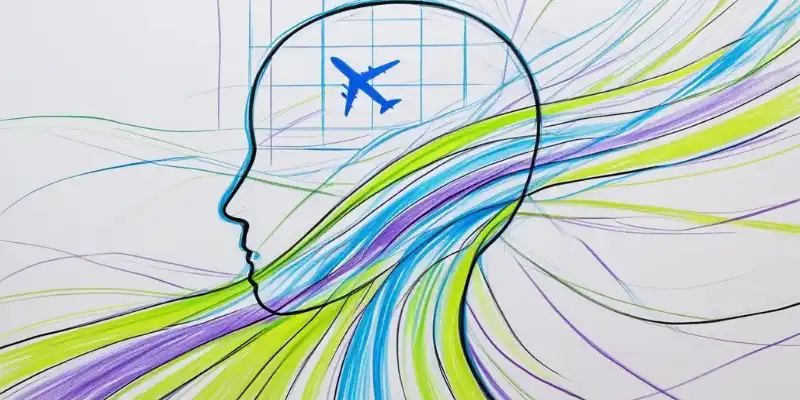
What to do instead: For high-performance situations, consider adding electrolyte-rich drinks or supplements to your hydration plan when needed, especially if you’re in the midst of prolonged physical or mental exertion.
- The Link Between Hydration and Sleep Quality
Did you know that staying hydrated can improve the quality of your sleep? Dehydration can disrupt your body’s ability to regulate temperature and cause dry mouth, both of which interfere with a restful night. Additionally, dehydration can trigger the release of stress hormones like cortisol, which can keep you from reaching the deeper stages of sleep.
Studies have shown that mild dehydration can lead to more frequent waking and less restorative sleep. Being adequately hydrated, on the other hand, promotes better sleep quality, faster recovery, and a more energized start to your day.
What to do instead: To ensure your sleep is undisturbed, hydrate consistently throughout the day but avoid drinking large quantities of water right before bed, as it might disrupt your sleep with frequent trips to the bathroom. Aim for optimal hydration earlier in the day for maximum benefits.
Data Integration Suggestion: Research from the National Sleep Foundation has shown that individuals who maintain proper hydration levels tend to experience better quality sleep and fewer disturbances throughout the night. Keeping hydration in check can directly influence both the duration and depth of your sleep, which in turn enhances cognitive function and overall well-being the following day.
These advanced insights and expert tips will help you elevate your hydration game to the next level, ensuring that hydration doesn’t just support your physical needs but also fuels your mental and emotional performance. By avoiding common hydration mistakes and implementing these strategies, you’re putting yourself in a prime position to perform at your highest level day in and day out.
Conclusion: Make Water Your Unfair Advantage
In a world where peak performance is a constant pursuit, the simplest and most effective tool you have to enhance productivity, focus, and overall well-being might be right in front of you—water. By optimizing hydration, you unlock the full potential of your brain and body, transforming the way you work, think, and feel.
When you hydrate properly, your cognitive function sharpens, your energy levels soar, and your mood stabilizes, creating the perfect foundation for sustained high performance. Whether it’s improving focus during deep work sessions, enhancing memory, or managing stress, water isn’t just a basic need—it’s the ultimate productivity tool.
This is a powerful yet accessible change, and it’s one that anyone—no matter how busy or stressed—can implement. By simply making hydration a priority, you’re investing in your long-term success and well-being.
The best part? You don’t need to overhaul your entire routine. Hydration is one of the easiest, most cost-effective adjustments you can make. Whether it’s starting your day with a glass of water, setting hydration reminders, or incorporating electrolytes when necessary, the results are immediate and impactful. Small, consistent changes can lead to monumental improvements in your performance, mood, and overall health.
- Start your hydration journey today! Choose one new habit from this guide—whether it’s front-loading your water intake in the morning or setting reminders throughout the day—and commit to it for the next 7 days.
- Share your favorite hydration hack in the comments below! We’d love to hear how you make water work for you.
- Explore more personal development and self-care strategies [Mastering Quiet Thriving: Your Blueprint for Sustainable Engagement and Holistic Well-being].
Water is waiting for you to make it a tool for success—don’t let it go unnoticed any longer. Start hydrating smarter today and unlock your true potential!
Unlock Your Hydration Secrets: Frequently Asked Questions
To gauge if you’re staying properly hydrated, monitor your urine color—it should be light yellow. If it’s dark or amber, it’s a sign you need to hydrate more. You should also feel energized and focused throughout the day without constant fatigue.
Yes, beverages like herbal teas and water-rich foods like fruits and vegetables can contribute to hydration. However, sugary drinks and caffeinated beverages like coffee should not be your primary source of hydration.
The general recommendation is to drink half your body weight in ounces of water daily. For example, if you weigh 160 pounds, aim for at least 80 ounces of water. Adjust based on activity level and environmental conditions.
No. Thirst is a late sign of dehydration. To maintain peak performance, it’s best to drink water regularly throughout the day—even before you feel thirsty.
Even mild dehydration can impair focus, memory, and cognitive processing. It reduces your ability to concentrate, solve problems, and think clearly, which can ultimately hinder productivity.
It’s beneficial to drink water before meals to support digestion and help control appetite. Drinking too much water during meals may dilute stomach acid and interfere with digestion.
Yes, it’s possible to drink too much water, which can lead to hyponatremia, or water intoxication. This condition occurs when your sodium levels drop too low, which can be dangerous. Balance is key.
Electrolytes like sodium, potassium, and magnesium help maintain fluid balance in the body. During intense exercise, travel, or hot weather, adding electrolytes to your water can help replenish lost minerals and prevent dehydration.
Yes. Dehydration is linked to increased irritability, anxiety, and stress. Staying hydrated helps you regulate emotions, maintain mental clarity, and stay composed in high-stress situations.
Morning hydration is crucial to kickstart your day, especially after sleep when you’ve gone several hours without fluid intake. Drinking water first thing in the morning helps replenish fluids lost overnight.

- Be Respectful
- Stay Relevant
- Stay Positive
- True Feedback
- Encourage Discussion
- Avoid Spamming
- No Fake News
- Don't Copy-Paste
- No Personal Attacks

- Be Respectful
- Stay Relevant
- Stay Positive
- True Feedback
- Encourage Discussion
- Avoid Spamming
- No Fake News
- Don't Copy-Paste
- No Personal Attacks


